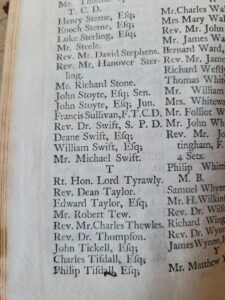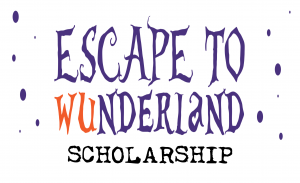Contest
One of my favorite vintage bookstore finds is two volumes (out of three) of a 1742 translation by Rev. Philip Francis of the complete works of Horace. It’s interesting not so much for the translations (Francis turns Horace’s simplicity into contrived eighteenth-century rhyming heroic couplets) but for the technique Francis used to get it published. At the beginning is a list of subscribers – famous and/or rich people who paid a fee to be publicly seen as supporting the author. Among the viscounts and bishops is one “Deane Swift, Esq.” That would be Jonathan Swift, of Gulliver’s Travels.
Of course, writers today don’t have to persuade subscribers to pay for publication, selling their work on the same model that PBS uses to fund Masterpiece Theater. But from what I’ve seen of my clients’ experiences, being a successful writer nowadays involves a lot of skills that have nothing to do with actual writing.
Editing, for instance. This comes in roughly two different flavors – conceptual editing, which critiques how well your plot and characters work, and copy editing, which deals more with correct spelling and usage. (Full disclosure, conceptual editing is what I do for a living.) A lot of writers hire this out, especially the conceptual part, since it’s all but impossible to fairly critique your own work.
But good editing can be pricy, and many beginning writers on limited budgets have to learn to do it for themselves. There are <ahem> a lot of good books on what to watch for as you rewrite. Critique groups, where writers trade critiques on one another’s manuscripts, can be a help. But editing, especially copy editing, is a very different skill from writing, and it’s one you may have to teach yourself.
Read MoreThis contest submissions season covers deadlines from June 1, 2020 through August 31, 2020. Summer is a slower time for any literary journal or contest associated with a university, but there are still opportunities between beach waves and new drafts. Thanks to Literistic, Poets & Writers, Submittable Discover, and New Pages for many of these contests.
Much like editors are looking for reasons to reject work, I want to focus on opportunities worth my time. Thus, my list of writing contests below includes reasons to submit to that particular writing contest. May you find a promising opportunity among this list and spend less time searching for where to send your exceptional work.
Read MoreI promised to follow up my last blog post on searching for relevant grants with a post on how to write a killer proposal. Well, here we are, at my next blog post, but also in another world. One with far more questions than answers–not just about writing, but about basic life and the shape of the future. I have had too much time during shelter in place to think how useless, or even callous it would be for me to carry on as planned. Will there even be grants for writers in the future? Shouldn’t I write a post about how to navigate the now, rather than the not so certain future?
I am not a navel-gazing sort, and my only advice on how to get through the current day-to-day is simply do your best, forgive yourself often and fully, and give yourself permission to pursue what you love and want to do as often as you can. And that last piece of advice is what convinced me to carry on as planned. Because ‘permission’ to do what you love is often linked to having the financial means to do so. Perhaps it’s naïve, but I believe that when we reach the other side of this transformation there will still be opportunities worth pursuing that will require proposals and applications. Perhaps not necessarily just for writing fiction. Perhaps for getting a job. Perhaps for landing a contract. Perhaps for applying for school or education.
Whatever future we are reeling towards, knowing how to describe what you want to do convincingly, concisely, and purposely is useful. Even if you only do it as an exercise to clarify your own understanding of your goals. So here is a strategy for writing an awesome proposal, for whatever you want to pursue.
How to Write a Killer Proposal
At different points in my career some very smart, successful people (including scientists, humanities scholars, writers, and even fitness gurus) have given me advice about how to craft a good project proposal. Despite their drastically different career paths, their advice was surprisingly consistent and could essentially be boiled down to one cardinal rule and four basic pieces of information.
The Cardinal Rule: clarity of language is of more value than trying to write to impress, whether with style, wit, language, name-dropping or jargon. (Although if you can be clear and witty at the same time, then by all means do so.) A good proposal is not about how much you say, but about how well formulated what you say is.
The Four Basic Elements of a Good Proposal. Simply tell them:
For aspiring fiction writers, the typical model of professional practice is to write the whole thing then shop it around, whether to agents, publishers, or directly to readers through self-publishing and self-promotion. Payment (if any) happens long after the work is done. This means not only that income is almost always a gamble, but that critical work time is financially unsupported and often hard to come by. I work as a research administrator for scientists, who also have to do a lot of work before any payoff. The ones I know support their work largely through grants and fellowships. While grants for writers aren’t as numerous (or as lucrative) as grants for scientists, they are out there. This post is a mini-introduction to strategies for finding, selecting, and applying for money to write by. Grants for writing won’t make you rich or give you a cushy life, but they might give you the quiet time you need to finish the critical work.
Types of Funding. There are two basic types of funding available for writers—grants and residential fellowships.
To successfully apply for a grant of any variety requires three steps: A. finding grant opportunities, B. selecting among all those enticing options the opportunities that are worth your time and effort, and C. writing a killer proposal. [This post covers items A. and B.; a later blog will discuss item C.]
A. Finding Grants/Fellowships to Apply For. The internet has made searching for grants easier than ever. You can use google—try typing in ‘best writer’s retreat in x” or “grants for writers with families” and see what shows up. But there are some websites that have done some of your searching for you already. The following is a list of some useful web resources. [Readers–If you’re aware of other resources that should go on this list, please add it to the comments and I will add to this list]
Read MoreWhen one of our writer friends, a kindly older gentleman named Bob Stewart, passed away unexpectedly in 2014, a group of us pooled our funds to send flowers for his funeral. Ultimately, far more came in than was needed, and so we decided to set aside the surplus and use it to create a special scholarship. The “Writer Bob” Perseverance Scholarship enabled one writer to attend the 2016 UnConference, and our pooled funds became her stipend.
Deb Lacativa more than met the standard of what we were looking for in a scholarship winner:
We are so pleased to announce this year’s opportunity: The 2019 “Writer Bob” Escape to WUnderland Scholarship!
What does the scholarship winner receive?
Not only will this year’s scholarship winner receive a ticket to the 2019 UnCon they will receive contributions we’ve been gathering as a stipend to help cover additional expenses, an amount that will be $600 or greater. (The stipend is only available to someone attending the event, and will be presented on our first night in Salem.)
Who should apply?
If you’re interested in an UnConference focused on deep craft and community-centric extras (learn more HERE and HERE)
If you, too, have been on a long journey with story, and have yet to meet your goal of creating a finished work you believe is ready for publication–
If you have an unrelenting passion for the craft of writing fiction–
If you might not otherwise be able to attend this year’s UnConference (11/4/19 – 11/8/19, in Salem, MA) but are seriously interested–
then we hope you’ll consider applying for WU’s “Writer Bob” Perseverance Scholarship.
What is the process?
Please send the following three items to UnConferenceScholarship@WriterUnboxed.com:
(300 words or less, in the body of the email)
(150 words or less, in the body of the email)
What is the deadline?
The application deadline for this scholarship is Friday, May 3rd.
Write on!
Read More












